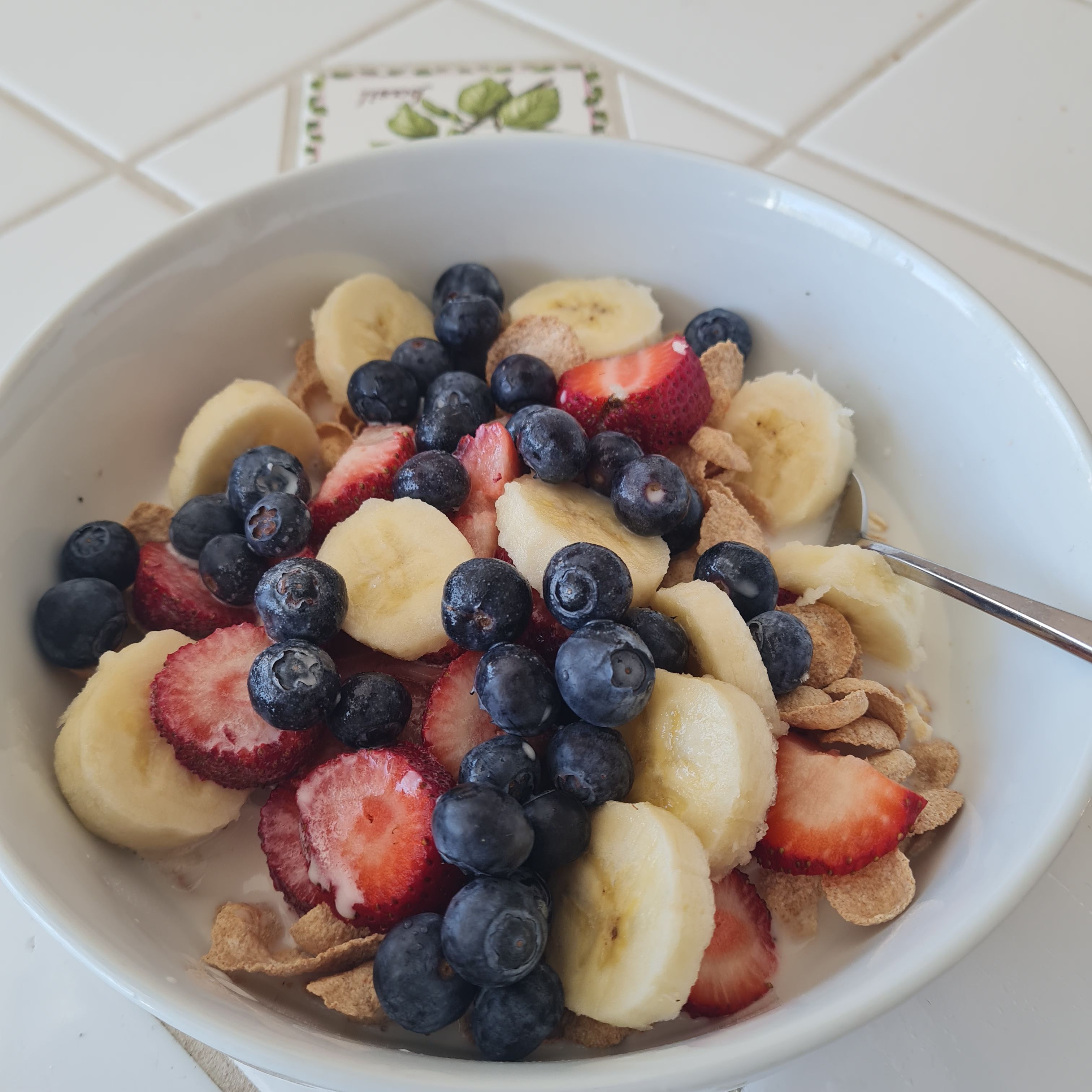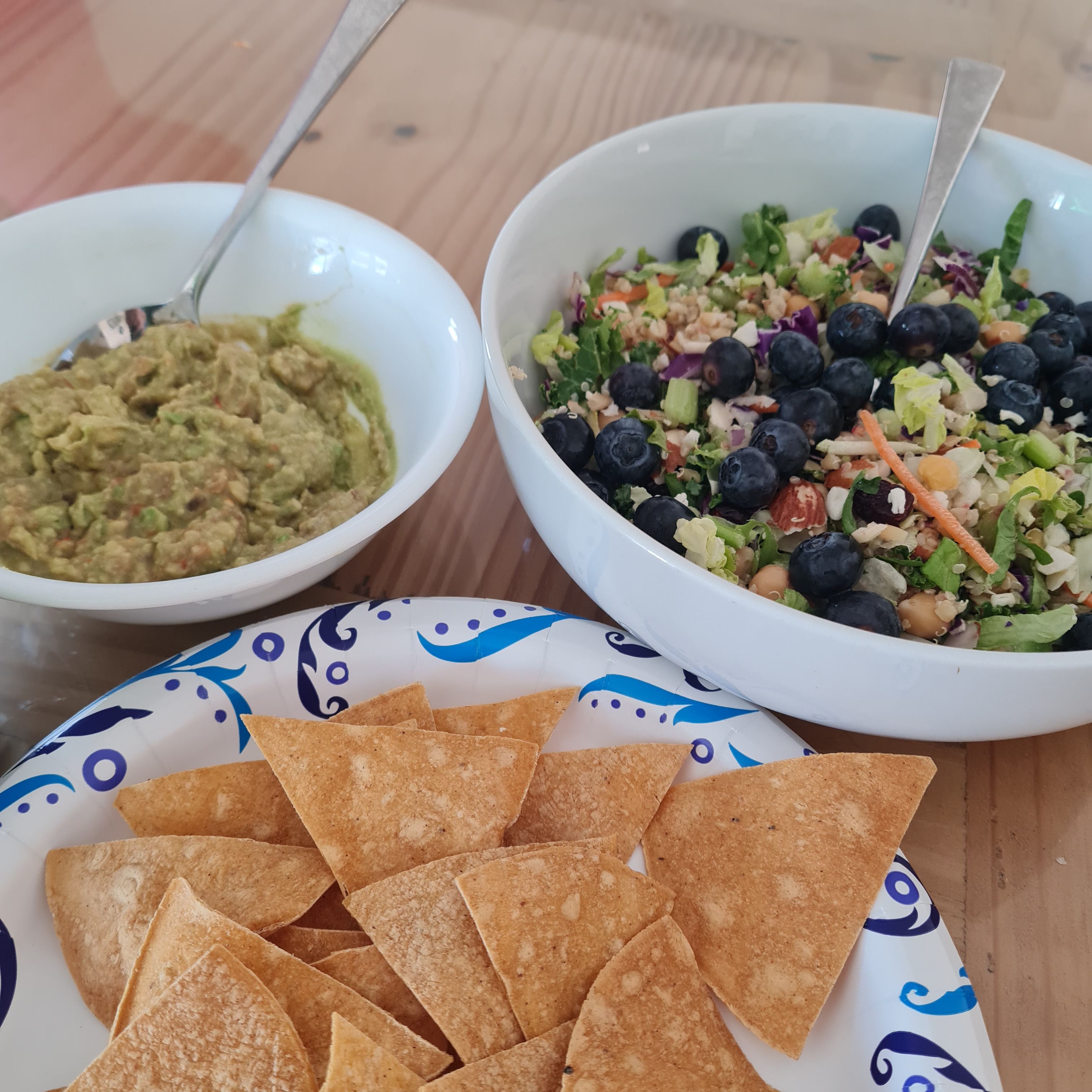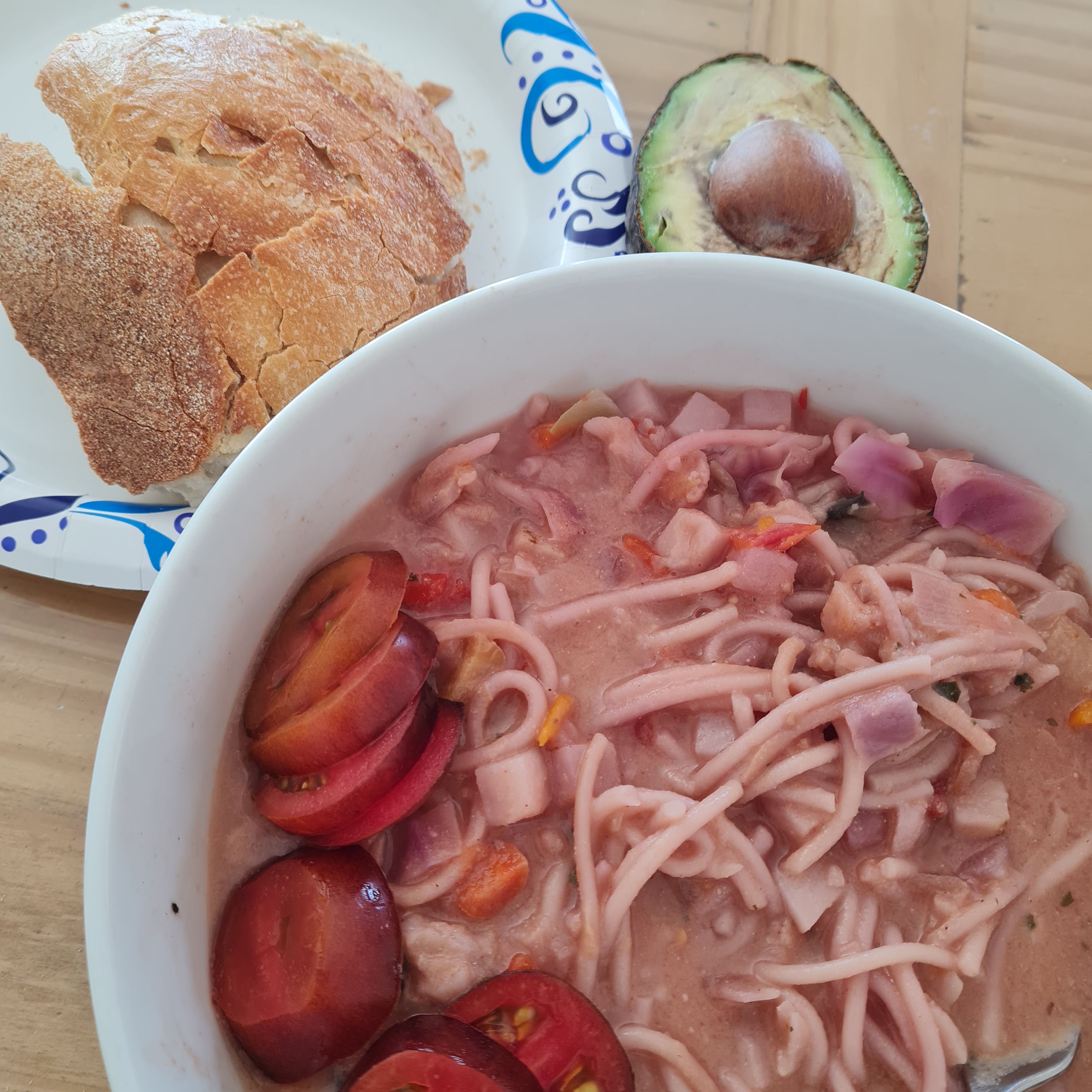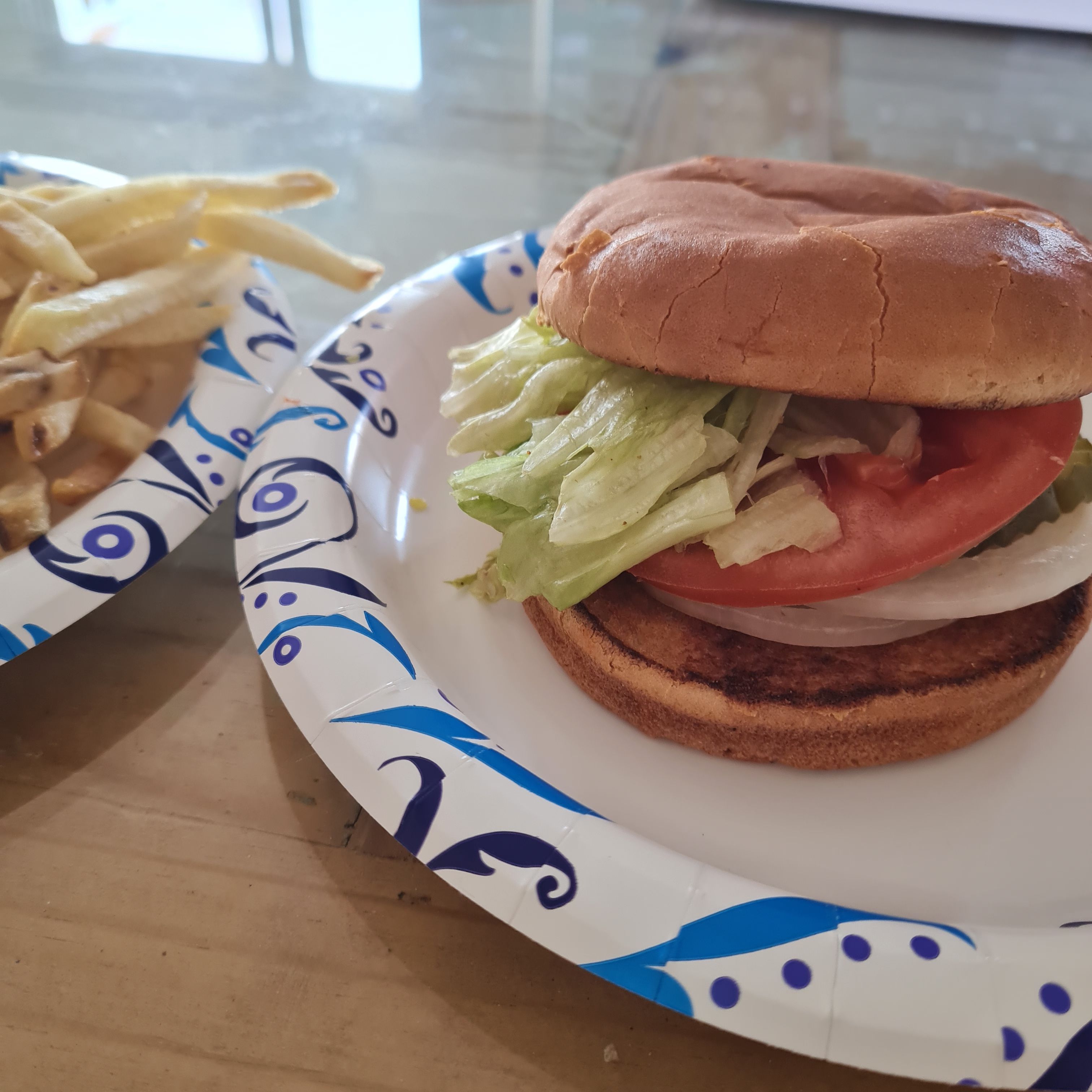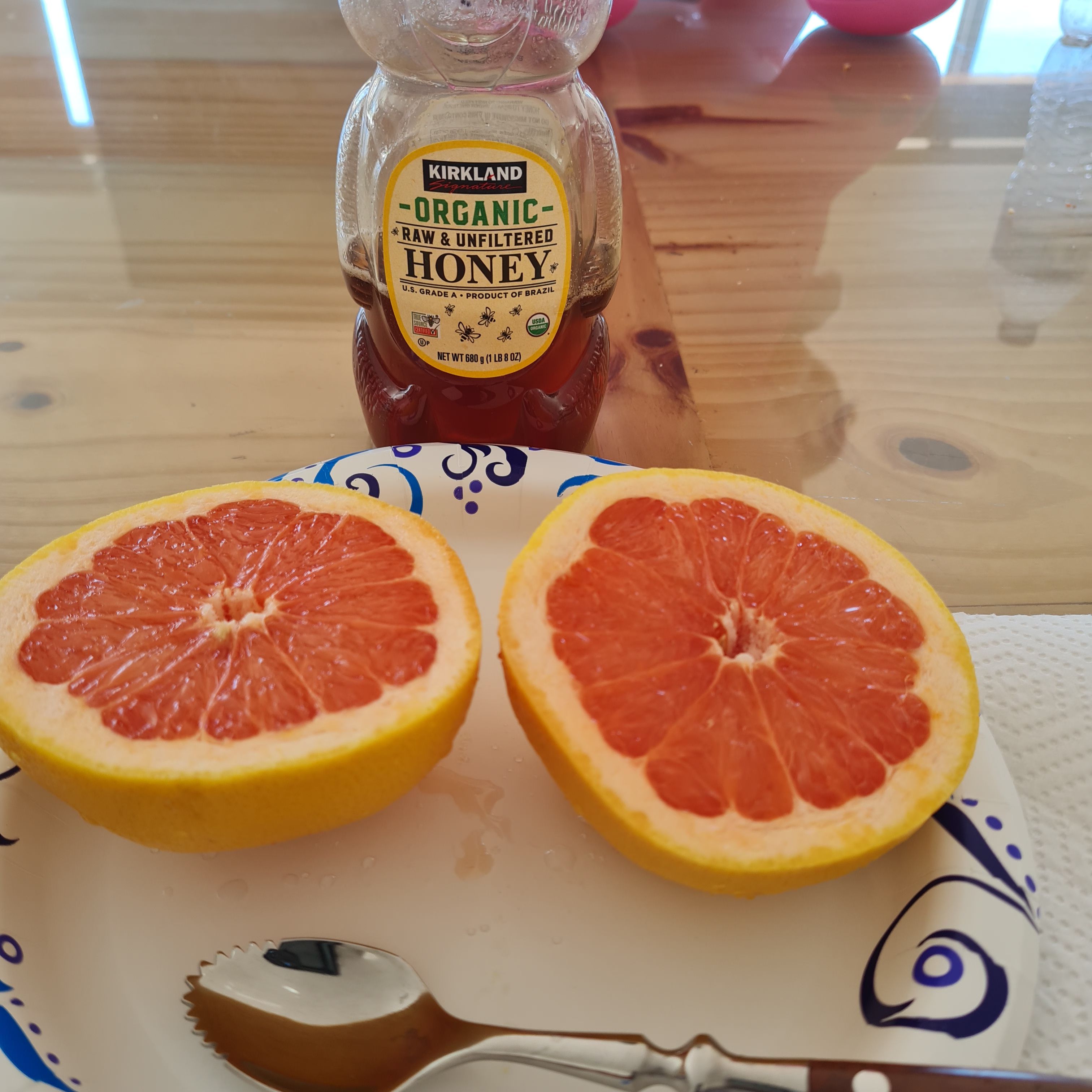

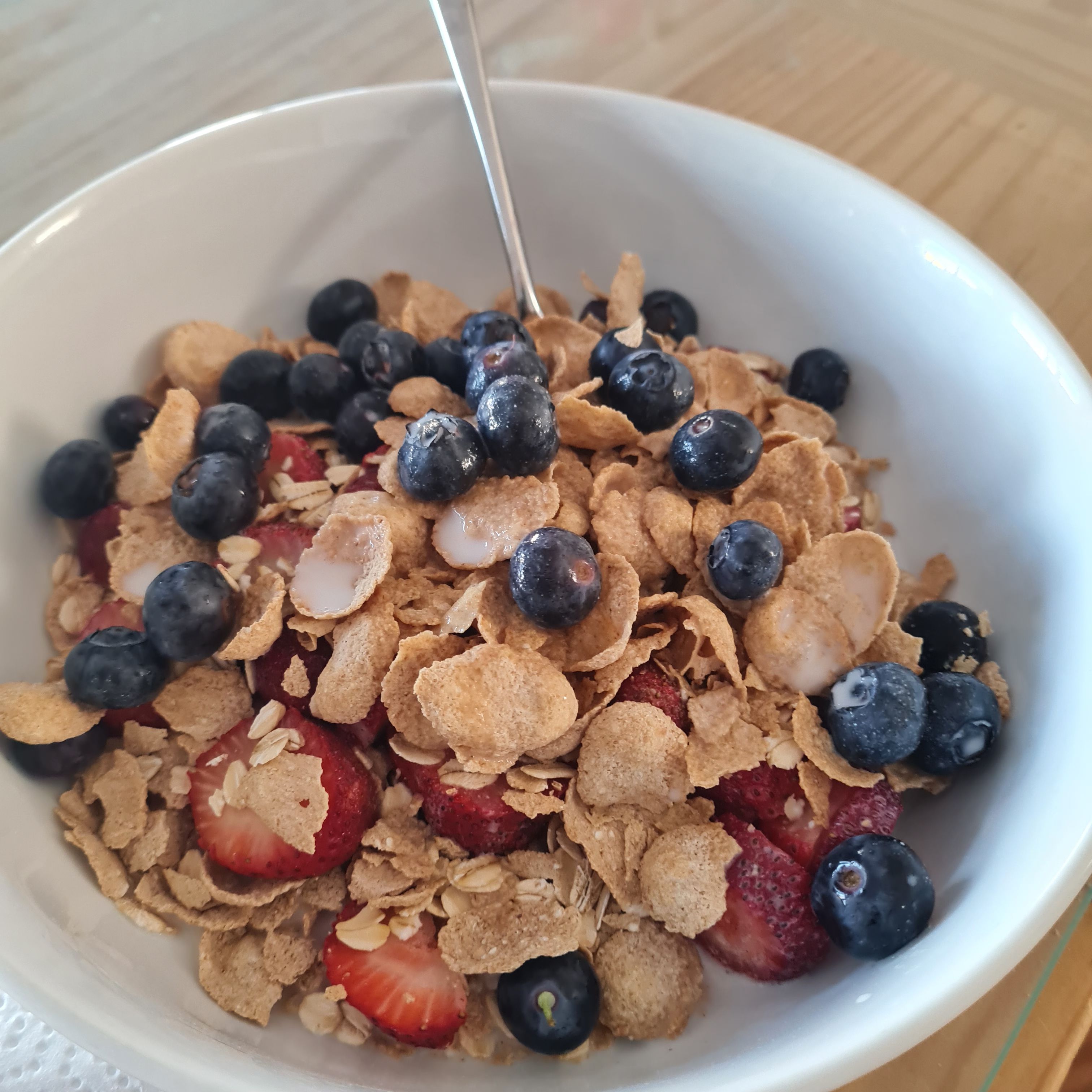
MEDITATION:
* Psalm 133 “Behold, how good and how pleasant it is for brethren to dwell together in unity!” vs 1
EXERCISE:
* Power walk around bldg & up/down stairs 45 minutes before lecture
* Standing Lecture 2.5 hours
* Walked another 20 minutes about campus, up/down stairs
* PT APP workout
– lower body / hip strengthening (moderate)
WATER:
(2) × (32) = 64 oz (+)
EATS:
* fresh grapefruit w/ drizzle of honey
* leftover chipotle veggie noodle soup
* potato tostada (baked) w/ one stewburger combined w/ boiled potato & salsa, tomato, avocado and chopped romaine, chicory, broccoli stalk, cauliflower, red cabbage, carrot & some Grain & Celery salad
* sparkling lime water w/ shot of soft XL-drink
* few walnuts
* rolled oats, spelt flakes w/ strawberries, blueberries & splash of (1:5 ratio of almond to water) almond milk
… SUN HAS SET …
Cmmt: XL indicates uncommon extravagantly luscious food, and wautéed means water-sautéed
